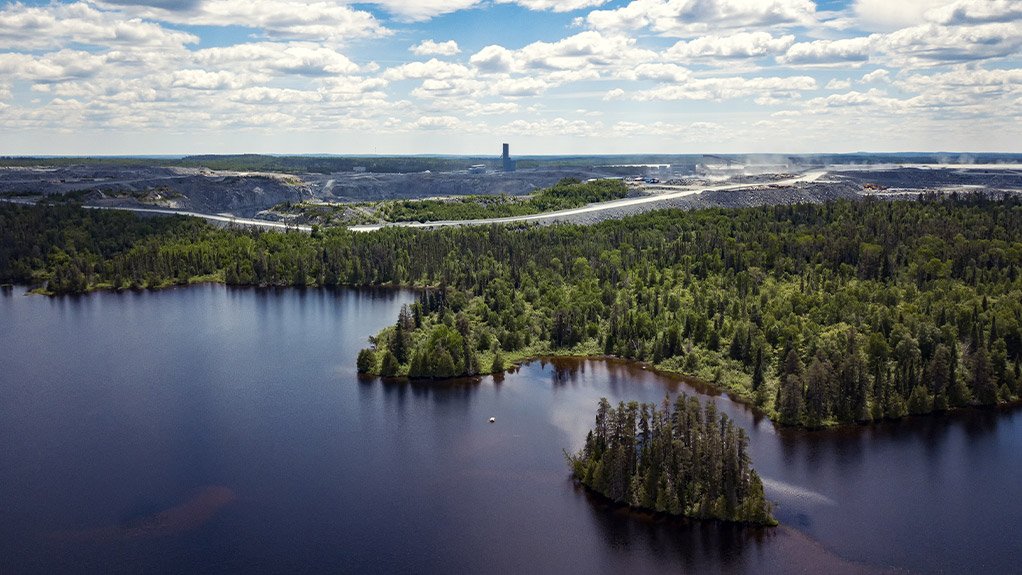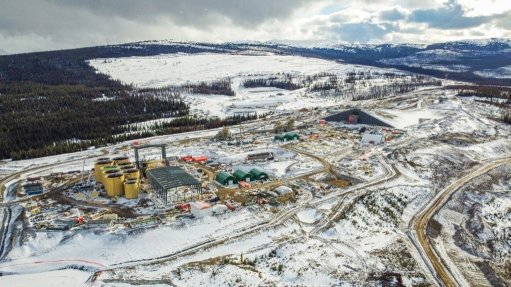Budget prioritises Canadian miners’ role in global critical minerals supply chain - MAC
The 2023 Budget, delivered by Finance Minister Chrystia Freeland on Tuesday, bolsters the ability of the Canadian mining sector to deliver for the country, recognising the industry’s central role in enabling the transition to a net-zero economy, says Mining Association of Canada (MAC) president and CEO Pierre Gratton.
"Without mining, there are no electric vehicles, no clean power from wind farms, solar panels or nuclear energy, and no transmission lines," said Gratton.
The release of Budget 2023 comes just days after US President Joe Biden's visit to Ottawa, where the need for Canada-US collaboration on critical mineral supply chains was discussed.
Freeland’s Budget builds on commitments in previous Budgets and the 2022 Fall Economic Statement and the Canadian Critical Minerals Strategy and commits to the following:
- A Clean Technology Manufacturing Tax Credit equal to 30% of the cost of investments in new machinery and equipment used to extract, process or recycle critical minerals essential for clean technology supply chains.
- A 15% refundable tax credit for eligible investments in clean electricity generation systems, including large-scale and small modular reactors. Eligibility is extended to include publicly-owned utilities, which will accelerate necessary investment in electric infrastructure, including in northern Canada such as the Atlin Hydro Expansion Project and the Kivalliq Hydro-Fibre Link.
- A commitment to improve the efficiency of the impact assessment and permitting processes for major projects by the end of 2023.
- A re-allocation of C$1.5-billion within the Strategic Innovation Fund to support projects in sectors including clean technologies, critical minerals and industrial transformation.
- The establishment of a C$1.5-billion Critical Minerals Infrastructure Fund, to be managed by Natural Resources Canada, towards energy and transportation projects to unlock priority mineral deposits.
- Supporting loans to Indigenous communities to support them in purchasing equity stakes in major projects through the Canada Infrastructure Bank.
"In the face of increased demand for low carbon technologies, and the need to ensure the minerals and metals essential to their development are mined with commitments to ESG, Indigenous engagement and sustainability at the forefront, there is no better choice than Canada," said Gratton.
"I am optimistic that with these new measures Canada will be able to attract new private sector investment into Canada's mining, smelting and refining industry, creating well-paid jobs for Indigenous and non-Indigenous Canadians across the country."
Meanwhile, the Prospectors & Developers Association of Canada (PDAC) said it was encouraging to see government committing further support for the mineral industry, noting that the 30% cleantech manufacturing tax credit will boost the economics of mining of critical minerals in Canada. Worth more than $10 billion over ten years, the cleantech manufacturing tax credit aims to offset the cost of equipment used for mining and processing critical minerals, and make building new mines in Canada more economically feasible.
“Critical minerals are integral to the technologies that will drive the world’s transition towards renewable energy and a low-carbon future. Canada is uniquely positioned as the second largest country on earth, hosting almost every type of mineral deposit and Canada is a strategic partner to most of the world’s largest economies. The transition is a monumental opportunity for Canada's exploration and mining industry and our government must continue to find ways to boost our competitiveness so that we can ensure that Canada can take full advantage of this opportunity,” said PDAC president Raymond Goldie.
He added that "Canada is already a world leader in low-carbon processing of a few critical minerals and government measures should enable Canada to expand and further advance its expertise.”
“Budget 2023 does not include all of PDAC's recommendations, nor does it include any new support for mineral exploration, which is the upstream source of material for new mines, processing plants and manufacturing. That said, the cleantech tax credit is an answer to our call to accelerate development of new critical mineral mines in Canada, and C$10-billion over 10 years is no small commitment. We will be focused on how these budget commitments will turn into actions. The new tax credit adds to the nearly C$4-illion committed in the 2022 Federal Budget and we are eager to see these funds actually start flowing so that they can have meaningful impact on the ground.”
“We are encouraged to see that the Budget provides more than C$1-billion in new supports for Indigenous governance, capacity, participation in decision-making and conservation. The PDAC is eager to see these measures lead to positive outcomes and to help to grow our mineral industry in a responsible way. We will continue to engage with the Federal Government to advocate for our members, for this industry, and for the future of Canada.”
Canada projects roughly C$3.8-billion in domestic exploration spending in 2023. About 20% of exploration spending in Canada over the last decade has targeted critical minerals like copper and nickel while less than 5% has gone towards other strategic (or battery) minerals such as lithium, cobalt, graphite or rare earth elements (REEs).
Launch of the Critical Mineral Exploration Tax Credit (CMETC) in Budget 2022 has helped spur exploration for this suite of minerals with 2023 exploration expenditures up more than eight-fold from 2020. However, spending levels fall short of what is needed to define the upstream resources required to build a sustainable end-to-end critical mineral supply chain in Canada. Given that the probability of success in exploration from a first mineral showing to a mine is only about 1 in 10 000, and that it often takes more than 15 years to discover a new deposit and build a new mine, 27 years to our net-zero target of 2050 does not seem that far afield and is a reminder that Canada must act quickly.
Comments
Press Office
Announcements
What's On
Subscribe to improve your user experience...
Option 1 (equivalent of R125 a month):
Receive a weekly copy of Creamer Media's Engineering News & Mining Weekly magazine
(print copy for those in South Africa and e-magazine for those outside of South Africa)
Receive daily email newsletters
Access to full search results
Access archive of magazine back copies
Access to Projects in Progress
Access to ONE Research Report of your choice in PDF format
Option 2 (equivalent of R375 a month):
All benefits from Option 1
PLUS
Access to Creamer Media's Research Channel Africa for ALL Research Reports, in PDF format, on various industrial and mining sectors
including Electricity; Water; Energy Transition; Hydrogen; Roads, Rail and Ports; Coal; Gold; Platinum; Battery Metals; etc.
Already a subscriber?
Forgotten your password?
Receive weekly copy of Creamer Media's Engineering News & Mining Weekly magazine (print copy for those in South Africa and e-magazine for those outside of South Africa)
➕
Recieve daily email newsletters
➕
Access to full search results
➕
Access archive of magazine back copies
➕
Access to Projects in Progress
➕
Access to ONE Research Report of your choice in PDF format
RESEARCH CHANNEL AFRICA
R4500 (equivalent of R375 a month)
SUBSCRIBEAll benefits from Option 1
➕
Access to Creamer Media's Research Channel Africa for ALL Research Reports on various industrial and mining sectors, in PDF format, including on:
Electricity
➕
Water
➕
Energy Transition
➕
Hydrogen
➕
Roads, Rail and Ports
➕
Coal
➕
Gold
➕
Platinum
➕
Battery Metals
➕
etc.
Receive all benefits from Option 1 or Option 2 delivered to numerous people at your company
➕
Multiple User names and Passwords for simultaneous log-ins
➕
Intranet integration access to all in your organisation





















